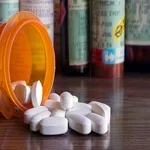
The North Central Health District is partnering with community groups in attempts to prevent prescription and opioid-based drug overdose and by administering Narcan training.
Misuse of prescription medication and opioid drugs have significantly increased over the past years to become a major public health concern in Georgia.
According to the Department of Public Health, opioid-involved overdose deaths have been rapidly rising in the state since 2010, driven largely by increased misuse.
Opioids are a class of drugs that include illegal heroin, synthetics such as fentanyl, and pain relievers that are legally available by prescription like oxycodone, hydrocodone, codeine, and morphine. They produce a sense of euphoria and possesses an extreme risk of addiction.
Beginning in 2020, drug overdoses sharply surged due to the escalating presence of fentanyl in illicit drugs, including stimulants like cocaine and methamphetamine.
Opioid drugs pose a multiplied danger of accidental overdose, which can stop breathing and lead to permanent organ damage or death.
The primary sign of overdose by opioid is unresponsiveness. Other signs include pale face, limp body, slowed breathing, vomiting, gurgling noises, inability to speak or be awakened, and blue or purple color to fingernails or lips.
If you witness or suspect an opioid overdose, it is important to quickly respond.
Immediately call 911, try to rouse the victim by speaking loudly or pinching their skin, support the person’s breathing by laying them on their side, and administer Narcan if you have it.
Narcan is a brand of the medicine Naloxone that can block or reverse the effects of opioid overdoses. It is a short-term measure to help provide time for medical professionals to respond to a scene.
Individuals can purchase a naloxone rescue kit from a pharmacy in Georgia by request. A standing order was issued to all pharmacies in the state in 2016. A prescription for naloxone is not needed.
Oftentimes, fear of arrest and prosecution prevent many people from calling 911 while in the presence of overdose.
The state of Georgia Medical Amnesty Law protects victims and callers seeking medical assistance at drug or alcohol overdose scenes with limited liability for the possession of small amounts of drugs and for breaches of parole, restraining order, probation, and other violations.
The NCHD is now holding events to teach attendees how to recognize and respond to overdoses. Their OD Prevention Program address the crisis by building and fostering partnerships, providing comprehensive and timely overdose data, and implementing interventions within at-risk counties and among high-risk individuals.
Between 2022 and 2024, the program has distributed over 2,800 Naloxone kits, over 550 fentanyl test strips, and has hosted over 1,700 training sessions.
